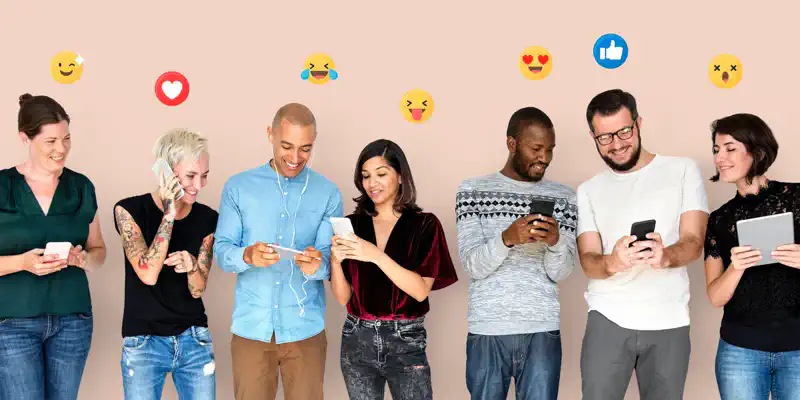While attending G-Star - an international gaming event held in Busan, South Korea - something interesting crossed our minds: in a world that is more connected than ever, thanks to the internet, why is it still so hard to break cultural boundaries and connect in a meaningful way? How does the internet affect our lives? Is it a source of unity or division? Surprisingly, social interaction isn’t as simple as we once thought and is a much more complicated matter. We used to follow basic rules such as sharing business cards, shaking hands, and making eye contact, but in the internet era, and especially following a global pandemic, communication seems to go beyond what we can easily comprehend.
As a result of generations of education, both academic and social, stereotypes and barriers are built in every social interaction. These can especially be seen in cultures where there are clear visual differences to the environments we live in, but, if you look below the surface you can see that they are everywhere. As we were in Korea, we will take the liberty of using the Korean culture as an example, but please keep in mind these observations are not limited to one culture; these things happen all across the globe, and even inside the same countries.
If you are from the West, in Asia, you will stand out. If you have tattoos, piercings, and colourful hair, even more so. It is impossible to blend in. Being unique in a fairly homogeneous environment has advantages and disadvantages. It will attract curiosity and admiration but it will also attract insecurities and shyness. In some very rare cases, it might even cause disgust. Some people will be keen to talk to you to discuss business and learn more. While some - on the other hand - will think it is impossible to communicate with you, they might even find you intimidating. Even though the same people watch Netflix, listen to international music, and have contact with other cultures, it doesn’t always help. In fact, sometimes it even hinders, because certain stereotypes are made even more prominent by movies and stories shared on the internet. And we all know how accurate those can be.
We would like to reiterate that this is not limited to Asia. Our Marketing Director, 30 years ago, was denied services in the north of Brazil, where the inhabitants were mostly of African and Indigenous descent because she was a ‘Galega’, the local denomination for a white person. Discrimination comes in all shapes and forms, and it is not always politically or racially driven, but again, we could write a book about this. Let’s get back to cultural differences for now.
Due to the internet’s ability to provide insight into other cultures and ways of life, things that are seen as unique and strange in other cultures should be normalised. In 2011, the UN declared that access to the internet is a human right. Granting accessibility is not enough though, especially if the language becomes another barrier to reaching the right information and presenting ideas.
“The internet is becoming the town square for the global village of tomorrow”’, states Bill Gates. But if all the voices in the world cannot be heard, their access to this ‘town square’ is limited and their cultures are unheard.
The other great issue that hinders the impact of the internet in regard to cultural differences is the creation and spread of misinformation. It was possible to see its effect above all during the pandemic when it became hard to sift through the truth and the misinformed.
Misinformation on the internet can be culturally broken down into representation, identity, production and consumption. In simple terms, the information is shaped by who is spreading it and how we connect with the source and context. On top of this it is also affected by how we produce and reproduce this information, using comedy, parody, sensationalism and emotional approaches at times. If you think about it, even by writing this post we are leaving our fingerprints on the internet and spreading our opinion on the matter.
And yet, despite all the discrepancies and difficulties, we are all equal as human beings. We all strive for connection, physical and emotional, to be part of something bigger than us, to matter to others. And the internet, gaming and fandom of all sorts allow us to do so in the most exceptional way. All different, and all the same.
Therefore, it is not all doom and gloom, and all is not lost. Travelling the world and sharing ODIN and 4NetPlayers with developers everywhere has shown us that now more than ever, we need to reach people with open hearts. We must use the power of the internet to learn more about other cultures while keeping a critical mind about the information being shared. We also learnt that listening to our international audience, while keeping our stereotypes and predetermined concepts in check, can be a powerful tool to help us to understand and adapt to cultural differences.
So, this is the lesson we, at 4Players, learnt today. Our products need to be more than just SDKs and services developers can use. They need to be tools for building the best experiences for all cultures.

